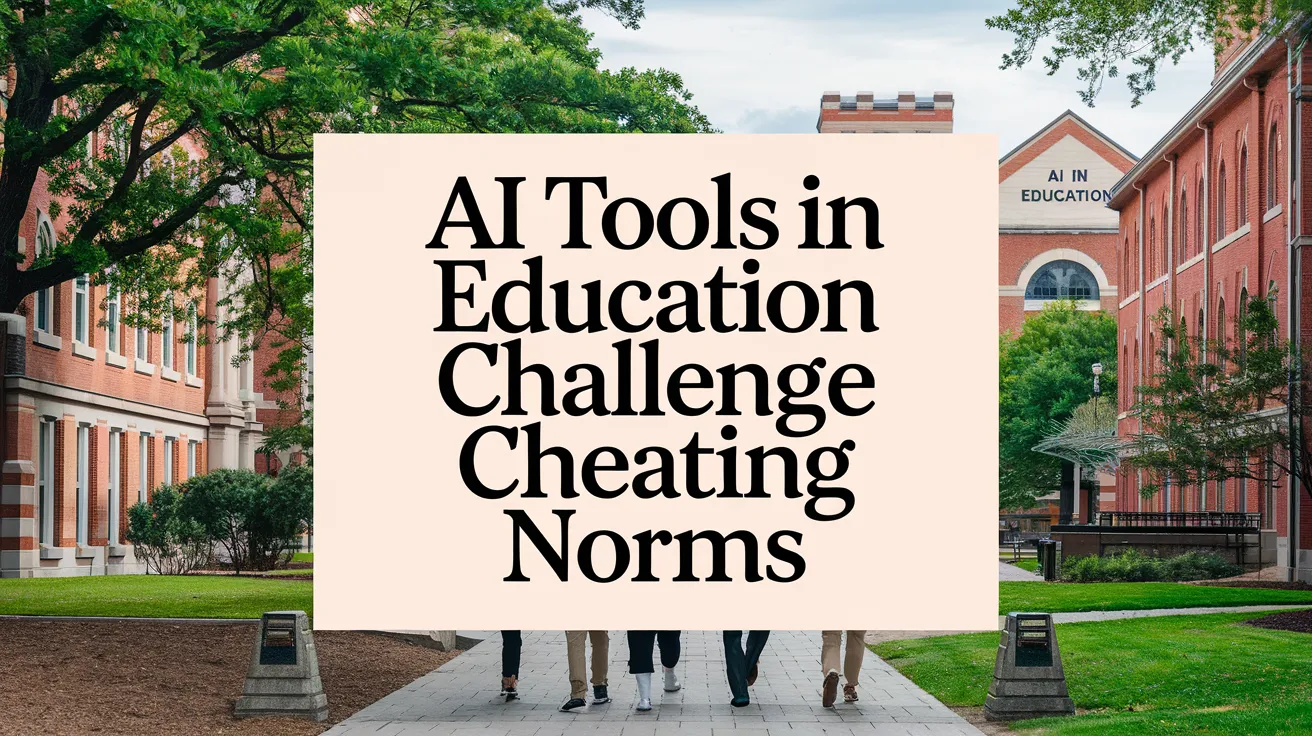AI Tools in Education Challenge Cheating Norms

The rise of artificial intelligence (AI) tools has forced schools to reconsider what constitutes cheating in an academic setting. With AI becoming seamlessly integrated into students’ educational experiences, high school and college educators express that assigning writing outside the classroom feels akin to enticing students to cheat.
Transformational Changes in Assignments
Casey Cuny, an English teacher with over two decades of experience, observes a notable increase in cheating among students. He states, “The cheating is off the charts. It’s the worst I’ve seen in my entire career.” The shift prompts educators to adapt their teaching methods, as traditional assignments become less effective. Cuny emphasizes the need to redefine academic dishonesty: “We have to ask ourselves, what is cheating? Because I think the lines are getting blurred.”
In response, Cuny has migrated much of the writing process to in-class settings, allowing him to monitor student work through technology that limits access to AI tools during assessments. Simultaneously, he strives to teach students how to leverage AI as an educational aid rather than a means of dishonesty, aiming for a constructive integration of AI into learning.
Shifts in Teaching Strategies
Across the country in Oregon, teacher Kelly Gibson has adopted similar practices, focusing on in-class writing and emphasizing oral assessments. She highlights the challenges posed by AI, recalling that previously standard assignments, such as requests for five-paragraph essays, are now virtually invitations for cheating. This sentiment reflects a broader concern among educators striving to preserve the integrity of the learning experience while recognizing the pervasive role of technology in students’ lives.
Students’ Struggles with AI Usage
As AI tools gain popularity, students express their unease over when their usage crosses into cheating territory. College sophomore Lily Brown illustrates this conflict, pondering whether seeking AI assistance for outlining or summarizing readings constitutes academic dishonesty. She notes the ambiguity in student guidelines regarding AI, creating a sense of confusion. With educators frequently forbidding AI tools while others embrace them, students find themselves navigating an inconsistent policy landscape.
Evolving School Policies on AI
In recent times, many educational institutions began prohibiting AI following ChatGPT’s release in late 2022. However, perspectives are changing, and “AI literacy” emerges as a key topic in educational discussions. Colleges and universities are now drafting clearer guidelines surrounding AI’s role in academia. The University of California, Berkeley, for instance, has communicated expectations regarding AI usage in its syllabi, recognizing that miscommunication could lead to inappropriate use of technology by students.
Despite the uptick in academic integrity violations related to AI, many students are unaware that they are inadvertently breaching rules. Rebekah Fitzsimmons, chair of the AI faculty advising committee at Carnegie Mellon University, illustrates the challenges this creates for educators attempting to enforce academic standards fairly when many transgressions stem from misunderstandings rather than intentional misconduct.
Future of Assessments in Education
To adapt to the intricacies of AI in modern education, some instructors have abandoned take-home exams altogether, opting for in-class assessments that employ restrictive technology to minimize opportunities for cheating. Emily DeJeu, another Carnegie Mellon instructor, emphasizes the responsibility of educators to establish clear boundaries to help students navigate their academic environment effectively.
As educational institutions continue to grapple with the implications of emerging technologies, the growing reliance on AI underscores the need for a fundamental reevaluation of academic practices. The integration of AI tools may present unique challenges, but it also offers the potential to enhance learning and promote responsible, informed engagement with technology.